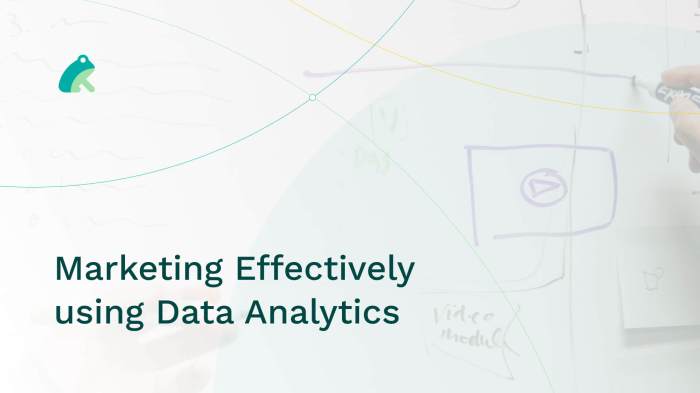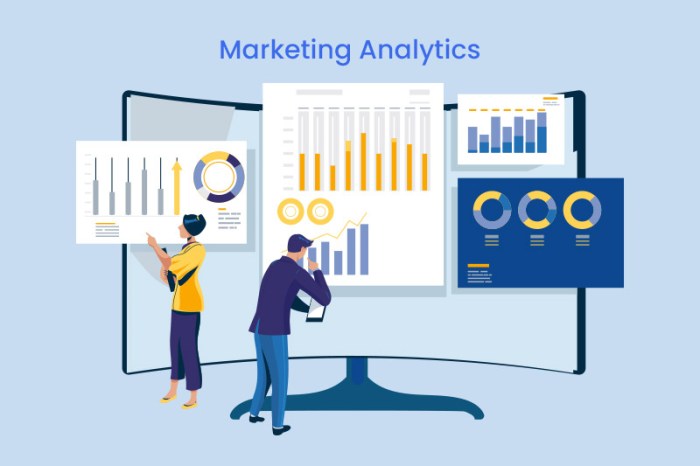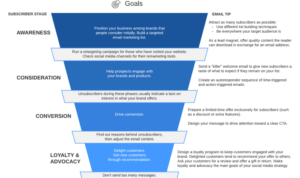Using Data Analytics for Marketing takes center stage in the digital landscape, offering marketers a powerful tool to enhance their strategies and connect with consumers on a deeper level. From understanding consumer behavior to crafting personalized campaigns, data analytics opens up a world of possibilities for businesses striving to stay ahead in a competitive market. Get ready to dive into the dynamic realm of data-driven marketing and revolutionize your approach to reaching your target audience.
Importance of Data Analytics in Marketing

Data analytics plays a crucial role in helping marketers make informed decisions by providing valuable insights into consumer behavior and preferences. By analyzing data, marketers can tailor their strategies to target the right audience with the right message at the right time.
Improved Decision Making
Data analytics can help marketers identify trends and patterns in consumer behavior, allowing them to predict future trends and adjust their marketing campaigns accordingly. For example, analyzing website traffic data can help marketers understand which channels are driving the most traffic and which ones need improvement.
Enhanced Marketing Strategies
Through data analytics, marketers can optimize their marketing strategies by measuring the effectiveness of different campaigns and channels. By tracking key performance indicators (KPIs) such as conversion rates and customer engagement, marketers can make data-driven decisions to improve their overall marketing efforts.
Understanding Consumer Behavior
Data analytics provides marketers with valuable insights into consumer behavior, preferences, and purchasing patterns. By analyzing data from sources such as social media, website interactions, and customer feedback, marketers can gain a deeper understanding of their target audience and create more personalized and targeted marketing campaigns.
Types of Data Used in Marketing Analytics

In marketing analytics, different types of data are utilized to gain insights and drive successful strategies. These data types include demographic, behavioral, and transactional data, each playing a crucial role in shaping marketing campaigns.
Demographic Data
Demographic data involves information about the characteristics of a target audience, such as age, gender, income, education level, and location. By analyzing demographic data, marketers can tailor their messaging and product offerings to specific segments of the population. For example, a clothing brand might use demographic data to create targeted ads for different age groups, resulting in increased engagement and sales.
Behavioral Data
Behavioral data focuses on how consumers interact with products, services, and marketing campaigns. This type of data includes website browsing behavior, purchase history, and engagement with online content. Marketers can leverage behavioral data to personalize customer experiences, recommend products based on past behavior, and optimize the customer journey. For instance, an e-commerce platform can use behavioral data to send personalized product recommendations to customers, leading to higher conversion rates.
Transactional Data
Transactional data pertains to customer purchase history, including details such as the products bought, purchase frequency, and average order value. By analyzing transactional data, marketers can identify trends, predict future buying behavior, and optimize pricing strategies. A subscription-based service, for instance, can use transactional data to offer personalized discounts or incentives to retain customers and increase their lifetime value.
Tools and Technologies for Marketing Data Analytics
Data analytics tools are essential for marketers to make informed decisions and optimize their marketing strategies. Let’s explore some popular tools and technologies used in marketing data analytics.
Popular Tools for Marketing Data Analytics
- Google Analytics: A widely used tool for tracking website traffic, user behavior, and campaign performance. It provides valuable insights for optimizing digital marketing efforts.
- Tableau: A powerful data visualization tool that helps marketers create interactive dashboards and reports to analyze and present marketing data effectively.
- CRM systems: Customer Relationship Management systems like Salesforce or HubSpot allow marketers to manage customer data, track interactions, and personalize marketing campaigns based on customer insights.
Features and Benefits Comparison
- Google Analytics: Offers detailed reports on website performance, traffic sources, and user demographics. It helps marketers understand user behavior and measure the effectiveness of marketing campaigns.
- Tableau: Enables marketers to create visually appealing dashboards and charts to showcase marketing data trends and patterns. It streamlines data analysis and presentation for better decision-making.
- CRM systems: Provide a centralized platform to store and analyze customer data, track leads, and manage customer relationships. Marketers can personalize marketing efforts and improve customer engagement.
Integration for Streamlined Data Analysis
Integrating various data analytics tools can streamline the marketing data analysis process by enabling seamless data flow between different platforms. For example, connecting Google Analytics with CRM systems can provide a holistic view of customer interactions and campaign performance. Marketers can leverage the combined insights to optimize marketing strategies and drive better results.
Data Analytics for Personalized Marketing: Using Data Analytics For Marketing
Data analytics plays a crucial role in enabling personalized marketing campaigns by providing insights into customer behavior, preferences, and demographics. This data allows marketers to create targeted and customized messages that resonate with individual customers on a personal level.
Examples of Personalized Marketing Strategies
- Recommendation Engines: Online platforms like Amazon and Netflix use data analytics to suggest products or movies based on user browsing and purchase history.
- Email Marketing Personalization: Companies personalize email content by segmenting their audience and sending relevant messages based on past interactions.
- Dynamic Website Content: Websites use data analytics to display personalized content to visitors based on their preferences and behavior on the site.
Impact of Personalized Marketing, Using Data Analytics for Marketing
Personalized marketing significantly enhances customer engagement and retention by creating a more tailored and meaningful experience for individuals. When customers receive personalized messages that cater to their specific needs and interests, they are more likely to engage with the brand and make repeat purchases. This leads to higher customer satisfaction, loyalty, and ultimately, increased revenue for businesses.





